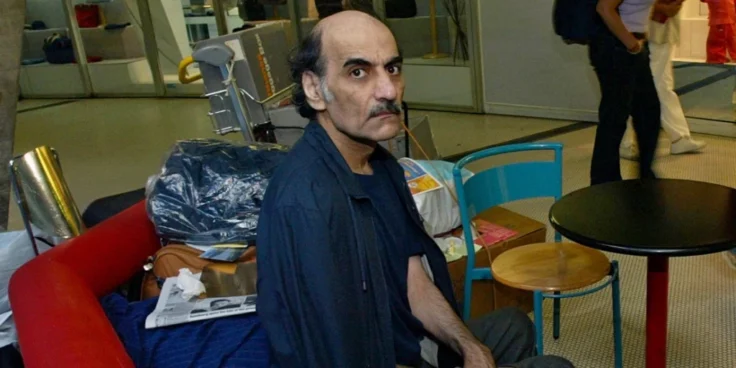In 1988, Iranian refugee, Mehran Karimi Nasseri, claimed to have been exiled from his native homeland for protesting against the ruling Shah and was stopped at Charles De Gaulle airport, in Paris, for attempting to cross borders without identification. Following his tumultuous arrival, he went on to spend the next consecutive 18-years inside one of the airport’s terminals, turning it into his own nest. Nasseri’s unconventional situation inspired many filmmakers and artists, including Steven Spielberg, who brought his strange story to life and shed light on his peculiar troubles in the award-winning 2004 film The Terminal.
Last Saturday, Nasseri passed away in Terminal 2F at Charles De Gaulle airport as a result of natural causes, following a fatal heart attack that medical teams present on site were unable to save him from.
According to an official spokesperson, the 77-year-old man was pronounced dead around noon on Nov. 12, putting a final full stop to decades of struggle. Although granted refugee status by the United Nation’s High Commissioner for Refugees in Belgium as well as the right to remain in France in 1999, the one who nicknamed himself “Sir Alfred” had several stints inside the airport, settling each time anywhere from a couple of days to several weeks and even many years secluding himself from the outside world.
Some of Nasseri’s claims, like his expulsion from Iran, were eventually debunked, however, his compelling condition caught the international community’s attention, especially news agencies, after Spielberg and Tom Hank’s cinematographic rendition of his experience inside Charles De Gaulle. Turned into a star almost overnight, it’s after his schedule was overly-filled with interview requests that he decided to refer to himself as “Sir Alfred.”
“The reality is that he had psychological problems,” said a spokesperson for the Paris airport authority. “He was a homeless person who was taken care of by the airport community and doctors.”
The story-turned-fiction found another iteration of itself in recent years, with a Syrian refugee, named Hassan Al Kontar, finding himself stranded at Kuala Lumpur International Airport until Canadian officials green-lit his entry onto North American soil. Similarly, Al Kontar was also unable to travel, spending several months grounded before being granted asylum.
Over the years, both stories rose several questions surrounding refugee and asylum rights, sparking new conversations on passport politics that are yet to have found sustainable answers.









